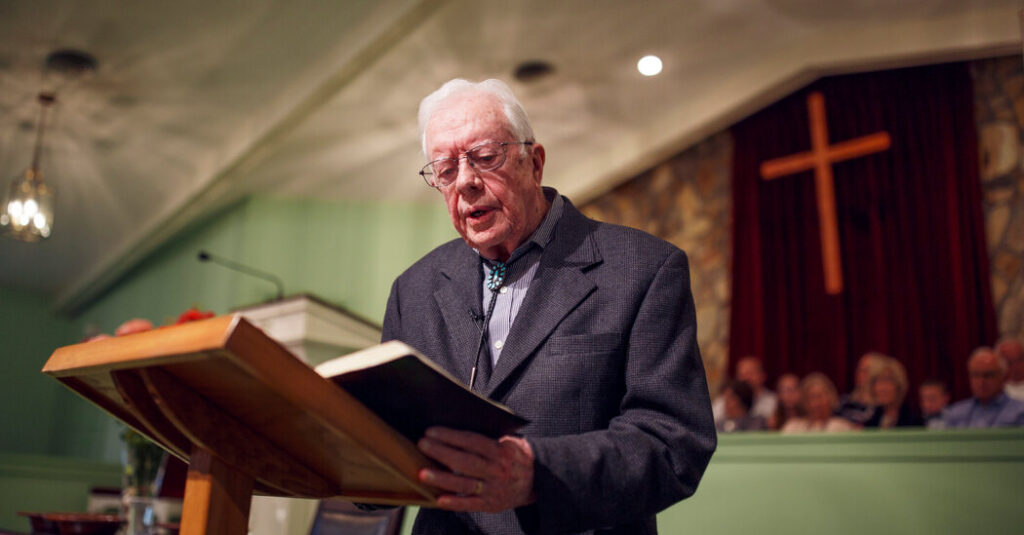Jimmy Carter was the first American president to describe himself as “born again,” now a somewhat quaint term for experiencing a rebirth through a personal relationship with Jesus Christ.
It was a process rather than a singular experience, according to the former president, who spoke frequently and fluently about his Christian faith throughout his life and was honored in a state funeral on Thursday.
“Being born again didn’t happen when I was 11,” he wrote in his 1996 book “Living Faith.” “For me, it has been an evolutionary thing. Rather than a flash of light or a sudden vision of God speaking, it involved a series of steps that have brought me steadily closer to Christ.”
A liberal Baptist from the South who focused on civil rights and equality, Mr. Carter was treated as something of an oddity by the East Coast press when he arrived on the national scene. Newsweek published a cover story pegged to his campaign in 1976 titled “Born Again! The Evangelicals.”
And his remarks about his faith sometimes provoked confusion, like when he remarked to interviewers for Playboy that year that he had “committed adultery in my heart many times” and “looked on a lot of women with lust,” references to Jesus’ words about sin in the book of Matthew. (In the same wide-ranging interview, he quoted the theologians Reinhold Niebuhr on the purpose of the law and Paul Tillich on religion as a lifelong search for truth.)
“Carter’s Comments on Sex Cause Concern,” ran the headline in The New York Times, reporting that Mr. Carter’s “earthy remarks” — he used what some considered coarse language in the discussion of adultery — might be a problem for him in the election, though he prevailed over the incumbent, Gerald Ford, two months later.
As president, Mr. Carter’s faith was not enough to endear him to the nascent Christian Right. Prominent conservative pastors and radio and television hosts portrayed him as weak on defense and soft on what they described as threats to “family life.”
Conservatives may have shared Mr. Carter’s theology and biography as a Southern evangelical Christian, but he was not considered one of them. Instead, they coalesced around Ronald Reagan, a divorced former actor who rarely attended church and routed him in the 1980 election.
Mr. Carter also wrestled with the religious tradition in which he was raised.
In 1976, his Baptist church locked its doors and canceled Sunday services rather than admit Black worshipers, a policy Mr. Carter opposed. His current congregation, Maranatha Baptist Church, was founded soon afterward by unhappy members who wanted a more inclusive place of worship.
And in 1990, he distanced himself from the Southern Baptist Convention over the denomination’s approach to women in leadership.
But Christian faith remained a defining theme for Mr. Carter, who enjoyed the longest post-presidency in American history. He became known for his charitable work, including with Habitat for Humanity, a Christian housing organization, and he taught a Sunday school class for years, regularly drawing crowds to his hometown, Plains, Ga., especially after he announced his cancer diagnosis in 2015.


